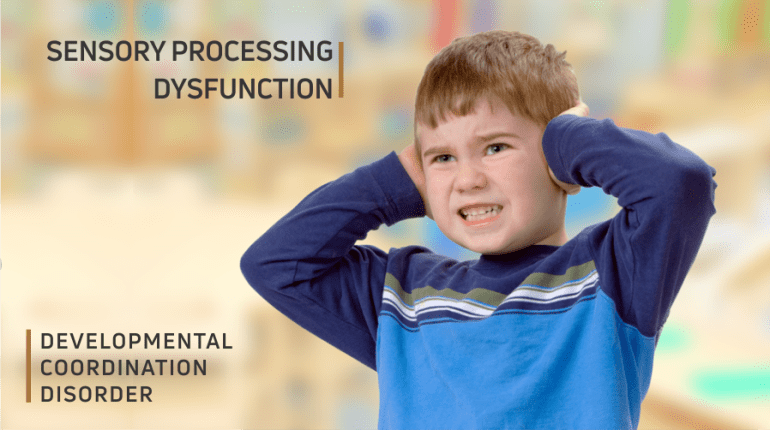Dyspraxia & Sensory Processing Disorder
Dyspraxia / Developmental Coordination Disorder (DCD)
Dyspraxia or Developmental Coordination Disorder (DCD) are diagnoses given by a doctor (usually a paediatrician) but they are often based on the specialist assessments carried out by an occupational therapist.
- Diagnosis
Diagnosis is given based on assessment of motor and functional skills. DCD relates to a lack of fluid, controlled and coordinated movement often causing difficulties with day-to-day activities such as movement, sports or dressing.
The brain of a child with Dyspraxia does not process information in the way that allows the full transmission of neural messages. A child with DCD or Dyspraxia will find it hard to plan what to do and how to do it. Children with DCD / Dyspraxia may typically present as clumsy or uncoordinated and will be behind their peers in terms of motor development. They may find day-to-day tasks difficult and may have frequent bruises from falls or trips.
Occupational therapy for Dyspraxia
All children develop motor skills at different speeds and there are standardised assessments which an occupational therapist can use to compare a child’s motor skills against their peers. Children who are assessed as having motor skills below a certain level, and in the absence of other developmental difficulties, may be diagnosed as having Dyspraxia or DCD.
Sensory Processing Disorder
We process information from our senses throughout our day. Whether it be the noise and the visual busyness from our tube journey to work, or the taste and smell of the meals we eat. We are aware of the 5 senses sight, smell, touch, sound, taste, but did you know that there are also 2 additional senses:
- Proprioception (body awareness)
Within our joints and muscles are receptors that tell our brain where our limbs are positioned in space.
- Vestibular (movement)
Vestibular receptors, located in the inner ear provide the brain with information about the body’s movement.
Most children process sensory input from the world around them easily to produce normal behavioural responses. It is when this information is not processed or ‘integrated’ correctly that a child’s ability to carry out day-to-day activities can be affected.
- Diagnosis
If a child is having difficulties processing the sensory information from the world around them their behaviour may be affected in many ways. They are less likely to be able to achieve their full academic potential, find social interactions difficult and find family activities such as swimming, holidays or going to the cinema distressing. - Tactile difficulties (touch)
These may be displayed through an aversion to sticky or dirty hands, not wanting to wear shoes or socks, finding clothes itchy, an interest in touching certain surfaces and fabrics, not liking having their hair washed or brushed, or not liking textured food, resulting in a fussy or picky eater.
- Proprioceptive difficulties (where they are in space)
This may present itself through a child seeking out heavy items to cuddle up under such as heavy clothing or coats. They may appear fidgety in class and constantly moving to seek input.
- Vestibular difficulties (movement)
They may avoid movement such as spinning or swinging or have a fear of heights, or they may be completely opposite to this and crave these sensations and engage in these activities at every opportunity.
- Auditory difficulties (hearing)
This includes an over sensitivity to loud noises, for example in the playground or swimming pool. Children who are under responsive to auditory input may appear to have a lack of attention to the world around them i.e. not noticing when their name is called out.
Occupational therapy for sensory processing disorder
An occupational therapist can help identify how a child is processing and responding to sensory information. Once the areas of difficulty are established, strategies and techniques are implemented to address them. The goal of occupational therapy is to foster appropriate responses to sensation in an active, meaningful, and fun way.
During occupational therapy sessions, the therapist guides the child through fun activities that are subtly structured so the child is constantly challenged but always successful. Treatment of any difficulty is never a once a week approach, to be truly effective it needs to be a 24 / 7 approach, incorporating school, home and the therapy sessions. Our occupational therapist specialising in a sensory integration approach, will work with you in your home to explain your child’s sensory challenges and teach techniques and strategies to work on them. This is sometimes called a ‘sensory diet’. We will also provide ideas to teachers who interact regularly with your child.



